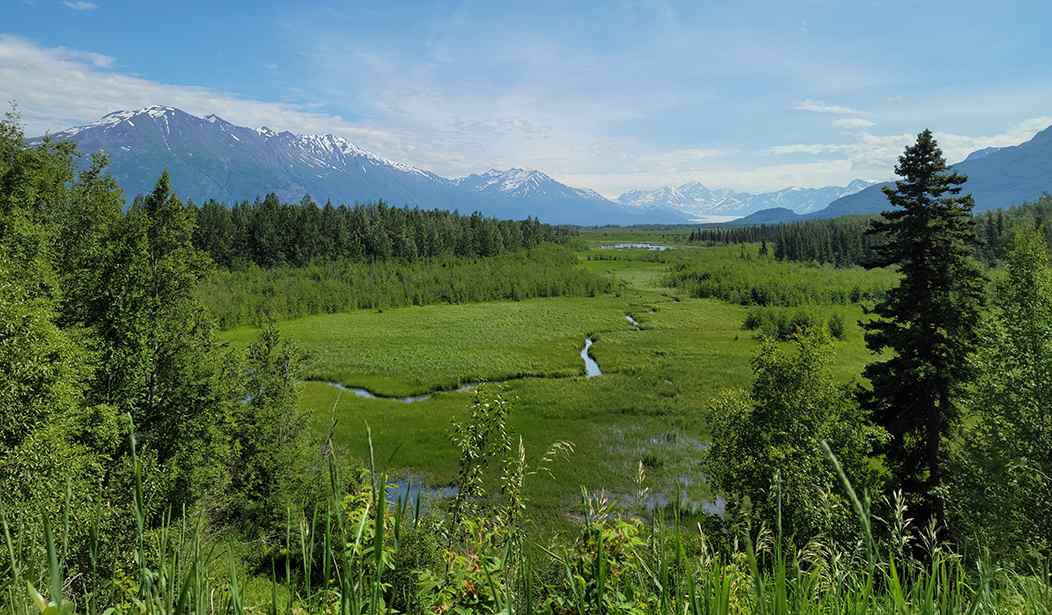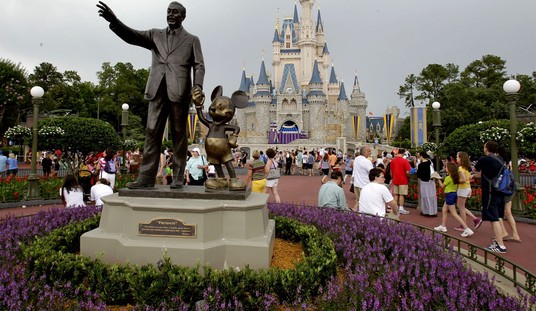Climate scolds love to lecture us about how climate change is going to result in rising oceans, flooding coastal communities, and presumably drowning entire cities. Of course, some of the scolds - John Kerry and Barack Obama, for example - maintain a strange fondness for beachfront mansions despite this finger-wagging.
Sea levels do change, just like everything else. In some places, sea levels are rising. Land rises and falls, as well, over the long course of geologic time. In the late Cretaceous, about 70 million years ago, there were no polar ice caps, and sea levels were a lot higher than now; a shallow inland sea once covered the area where the Rocky Mountains now stand, while Antarctica was covered in temperate forests.
In Alaska, though, sea levels are dropping. And it doesn't have anything to do with climate change - at least, not anything humans have done. This is something that has been going on for thousands upon thousands of years.
According to data provided by the National Oceanic and Atmospheric Administration, Juneau’s sea level is dropping fast, about 4.41 feet every 100 years. Those with property that touches the ocean along the coast are ending up with more land, as time passes.
Those who live in Juneau know this to be the case, and scientists have a name for it: Glacial rebound, when the earth’s solid surface rises after glaciers melt, bouncing back from the weight the ice had put on the land. This scientific name for this is “glacial isostatic adjustment” or “isostatic rebound.”
“The relative sea level trend is -13.43 millimeters/year with a 95% confidence interval of +/- 0.31 mm/yr based on monthly mean sea level data from 1936 to 2023, which is equivalent to a change of -4.41 feet in 100 years,” NOAA reports about the change seen in Juneau, where the measurements are taken near the Coast Guard station in the support area of downtown.
Some of this rebound is the result of the retreat of the Pinedale Glaciation, roughly 10,000 years ago. Much of the recent rebound is due to the Little Ice Age, a time when much of Europe was also freezing. This climate event lasted from the 14th to the mid-19th centuries, and throughout that time there were no coal-fired power plants or SUVs; the number of methane-emitting cows was certainly smaller - although roughly 60 million bison did roam the Great Plains through most of that time, presumably emitting methane from both ends.
During the time of 1300 to about 1850, glaciers covered up to one third of Alaska. Now, however, only about 5% of Alaska’s land is covered by glaciers. Juneau, sitting so close to the Juneau Icefield and Mendenhall Glacier, is experiencing routine flooding from dammed up water alongside the glacier, a condition that has developed as the glacier retreated.
There are still, of course, glaciers in Alaska, and yes, some of them are retreating. But it's a bit of a stretch to claim that this retreat, which has been going on for almost 200 years, is due to human activities that have only been going on for less than half that time.
See Related: Experts Insist Sea Levels Are Rising Despite Photos Proving They Aren't
Buyers Snapping Up Beachfront Homes, 'Climate Change' and Rising Sea Levels Notwithstanding
It is, as I have written repeatedly, the height of human hubris to insist that we know the planet's "correct" climate.
This little, blue-white pearl we live on is 4.55 billion years old, give or take 100,000 or so. Through the vast majority of that time, it's been warmer than it is now. As recently as the Oligocene, the Earth was notably warmer than now despite lower CO2 levels. Things started cooling in the Miocene, around 15 million years ago, and that has led to the current situation in which, geologically speaking, massive glaciers have been running up and down the Northern Hemisphere like window blinds.
It's important to note there were no people around in the Oligocene or the Miocene.
The Earth moves on its own cycles. Those cycles are often long, encompassing spans of time beyond our imagining. In the past, it's been warmer than now, and at other times, it's been warmer. As I mentioned, it's not our place to claim we know what the planet's "correct" temperature range is - and there is no reason to take steps that will reduce or eliminate our modern, comfortable, technology-based society to try to force the planet into the desired outcome of climate scolds. After all, they don't know what the planet's "correct" temperature range is, either, and if you were to ask them, expect a blank look in reply.
So, fear not the rising tide. As the tide comes in, so it goes out again, no matter what we little, short-lived humans have to say about it.













